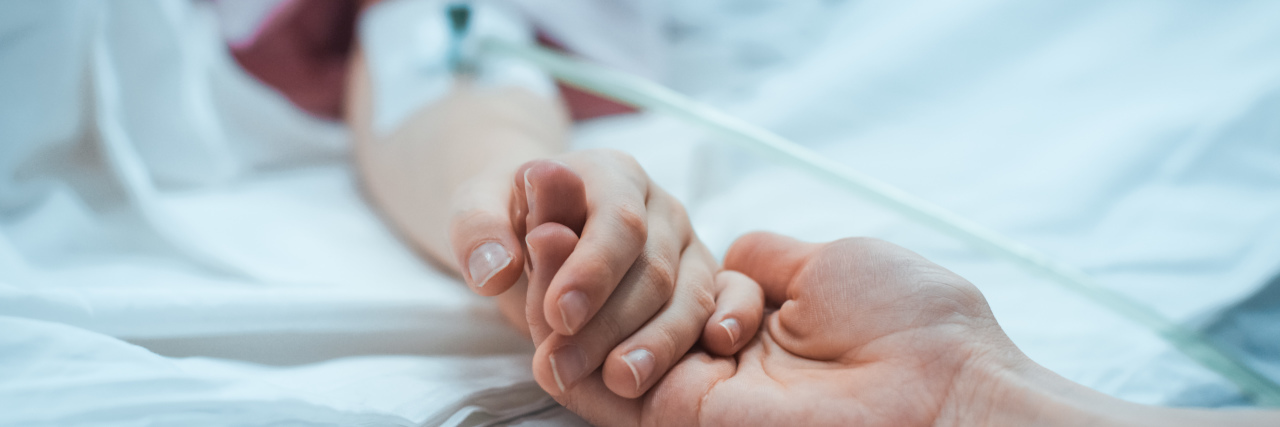We Live in a Space Between Questions and Answers for Our Medically Complex Children
As the parent of a child with disabilities I rely on science to guide and help us through our days. Without science, I don’t know where we would be. At the same time, many days leave me with more questions than answers. Without faith and a willingness to believe that some mysteries will always remain, I would be lost.
Our daughter, Erin, 17, has a rare genetic condition which causes significant physical, mental and emotional challenges. We have worked with a host of therapists and medical professionals over the years to override these hurdles. One doctor, in particular, has served as a consistent touchstone along this journey. A highly regarded neurologist, he sees in Erin possibilities many do not and strives to tease that potential from her and us.
“I know she’s capable of more,” he says, looking beyond whatever crisis we hand him. His conviction and optimism surprise me. I don’t know what he bases it on – aside from a glimmer in her eye, her attention to detail, a hunch? So often he seems to go with his gut. “I have a good feeling about this,” he said the other day, as we mapped out a new approach.
We have recently been mired in a 10-month cycle of extremely challenging behaviors. When I asked our doctor why several trials of new medications had failed and why the old ones had lost their efficacy, his answer surprised me. “You know humans are always looking for answers,” he said. “That’s what makes us human – and solves a lot of questions, by the way. But we frustrate when we can’t find the answers, and not to get philosophical, maybe that’s where faith and religion comes in.” While his words took me off guard, he assured they were not meant as a white flag. In the same breath, he pledged that he would never stop working toward an answer: “I want you to know, I will never say I don’t have another idea.”
As much as I appreciated his commitment to help our daughter, I found surprising comfort in his his admission that sometimes answers elude – and that sometimes we must live through the questions. His willingness to acknowledge this made me realize that like the rest of us, doctors and scientists often reside in a space between the questions and the answers. Scientists spend hours, days and years researching ideas, testing theories, and running trials, each and every one of which requires a small leap of faith. In many ways, their profession is not much different from parenting itself.
The decision to care for a child requires one to marry the principals of the scientific method: observation, experiment, testing and modification of hypothesis with the art of living with uncertainty, letting go and relying on faith. However many years under the belt, regardless of a child’s abilities, parents most often inhabit a space between questions and answers, a space where science ends and hope begins. It’s not always an easy or comfortable place, but we continue to have faith, as there are no alternatives.
My son recently turned 16 and received his driver’s permit. He wants to jump behind the wheel every chance he can. My knee jerk is to keep him in the passenger seat. Will he be OK out there on the road? I hope — but know that this is a hope grounded in reason — and hours and hours of practice. One hand instinctively on the dash board, I remind him to use the blinker, to slow down, to focus on the intersection ahead and not the music. I point out the obvious: a stop sign, a truck double parked, a woman walking her dog just up the road. As we roll along I forget myself for a minute, look out the window at the trees, and continue on in faith.
It’s the same faith I carry for Erin, for our family, and for science to help guide us along the way — through all the questions and the many unknowns.

